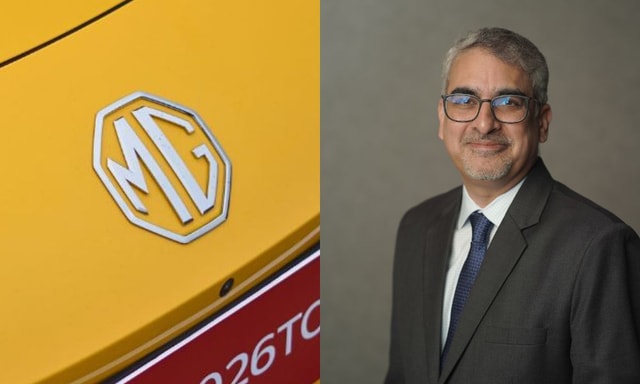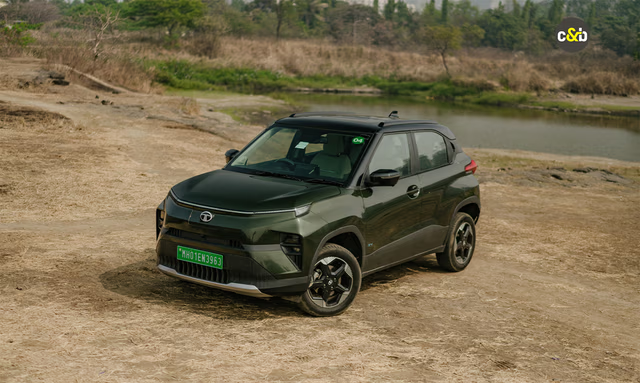How to Know if You Need New Brakes

- People often overlook the maintenance of their brakes
- Brakes are an essential part of your car that needs regular maintenance
- Having up-to-the-mark brakes can make the difference between life & death
The maintenance of brakes should be a priority as it could be a question of life and death in some cases. It is beneficial if you regularly replace some of the parts of your car, and the brake pads are one of them. Let's look at some signs which would tell you that it's time that you need new brakes. Let's dive in!

Photo Credit: www.popularmechanics.com
Vibrating Brake Pedal
Warped rotors cause a pulsation or vibration through your brake pedal. When the rotors are too old or thin or even when your brake works irresponsibly, your car's rotors become warped. This is the time to replace the brakes.
Sensitive to the Extreme
If your car experiences a sudden jerk when you apply the brakes, it means that the rotors have worn out or your brake fluid needs to be changed. Either way, it means that you need to see your car mechanic.
Significant Grinding Noise
If you hear metallic growling or grinding, your brake pads have completely worn out. At this point, replacing them is the best option, as the sound is most likely coming from the rotor rubbing against the metal plate. Subsequently, the rotors may scratch or even cause sticky brakes. You need to address this situation immediately.

Photo Credit: www.lesschwab.com
Apparent Wear and Tear
You can visually inspect your brakes. The inspection should be done between the wheels' spokes which are pressed against the rotor. Ensure that the pads are more than a quarter of an inch thick otherwise, get them inspected by a mechanic and replace them.
Screeching Noise Despite Getting New Brake Pads
Glazed rotors can be caused by excessive braking, which causes the metal to heat up and burn. High-pitch noises or screeching from the brakes don't always indicate replacement. If you find blue or black marks around the rotors, you need to replace the brakes. You can warp the rotors if you apply brakes at high speeds. It's best to keep it on the low.
Halting the Car Takes Longer
Brake fade is the result of intentionally braking for long distances without stopping. While sometimes it's necessary, doing so regularly will heat up the rotors and the brake pads. The ability to produce the required friction against one another reduces with time. This results in your car not stopping the way it should when you apply the brakes. In this case, a trip to the mechanic is due.

Photo Credit: www.instructables.com
Car Goes Towards One Side When you Apply Brakes.
The brake pads don't wear out simultaneously or even at the same rate. It might be that one side wears out quicker than the other, and if this happens, your car will steer towards that side when you apply brakes. When this happens, you must get your brakes checked.
Latest News
 Girish Karkera | Feb 16, 2026MG's First Plug-In Hybrid For India Coming In 2026, Confirms MD Anurag MehrotraJSW MG is pivoting toward a hybrid and electric future, targeting a 30% market share for New Energy Vehicles (NEVs) by the end of the decade1 min read
Girish Karkera | Feb 16, 2026MG's First Plug-In Hybrid For India Coming In 2026, Confirms MD Anurag MehrotraJSW MG is pivoting toward a hybrid and electric future, targeting a 30% market share for New Energy Vehicles (NEVs) by the end of the decade1 min read car&bike Team | Feb 15, 2026Maruti Suzuki Brezza Facelift Spied With 6-Speed Manual GearboxLatest images of the test car’s interior suggest that it could become the first Maruti to get a 6-speed manual gearbox.1 min read
car&bike Team | Feb 15, 2026Maruti Suzuki Brezza Facelift Spied With 6-Speed Manual GearboxLatest images of the test car’s interior suggest that it could become the first Maruti to get a 6-speed manual gearbox.1 min read Jaiveer Mehra | Feb 15, 2026SIAM Reports PV Sales Of Almost 4.5 Lakh Units, 2W Sales Of Over 19 Lakh Units In January 2026SIAM reported that sales of passenger vehicles and two-wheelers were the best ever for the month of January.1 min read
Jaiveer Mehra | Feb 15, 2026SIAM Reports PV Sales Of Almost 4.5 Lakh Units, 2W Sales Of Over 19 Lakh Units In January 2026SIAM reported that sales of passenger vehicles and two-wheelers were the best ever for the month of January.1 min read car&bike Team | Feb 14, 2026Kawasaki Ninja, Versys Models Available With Discounts Of Up To Rs 2.50 LakhThe highest discount is being offered on the Ninja ZX-10R, followed by the Ninja 1100 SX and ZX-6R models.2 mins read
car&bike Team | Feb 14, 2026Kawasaki Ninja, Versys Models Available With Discounts Of Up To Rs 2.50 LakhThe highest discount is being offered on the Ninja ZX-10R, followed by the Ninja 1100 SX and ZX-6R models.2 mins read car&bike Team | Feb 14, 2026Vespa Officina 8 Launched At Rs 1.34 LakhThe Officina 8 takes inspiration from Piaggio’s historic experimental workshop in Pontedera, Italy.1 min read
car&bike Team | Feb 14, 2026Vespa Officina 8 Launched At Rs 1.34 LakhThe Officina 8 takes inspiration from Piaggio’s historic experimental workshop in Pontedera, Italy.1 min read Bilal Firfiray | Feb 12, 2026MG Majestor vs MG Gloster: What’s New, What’s Different?MG Majestor replaces the Gloster as MG’s new flagship SUV for 2026. Here’s a detailed comparison between the two.4 mins read
Bilal Firfiray | Feb 12, 2026MG Majestor vs MG Gloster: What’s New, What’s Different?MG Majestor replaces the Gloster as MG’s new flagship SUV for 2026. Here’s a detailed comparison between the two.4 mins read
 Jafar Rizvi | Feb 15, 2026Maruti Suzuki Victoris: Long-Term Review - Report 1The Victoris is Maruti’s latest offering for the Indian market, and after spending some time with it, here are a few early impressions.1 min read
Jafar Rizvi | Feb 15, 2026Maruti Suzuki Victoris: Long-Term Review - Report 1The Victoris is Maruti’s latest offering for the Indian market, and after spending some time with it, here are a few early impressions.1 min read Bilal Firfiray | Feb 12, 2026BMW X3 30 xDrive M Sport Review: The Driver’s SUV ReturnsRange-toppingX3 30 xDrive M Sport brings back the fun with 255bhp and genuine enthusiast appeal. Does this performance-focused SUV stand out?5 mins read
Bilal Firfiray | Feb 12, 2026BMW X3 30 xDrive M Sport Review: The Driver’s SUV ReturnsRange-toppingX3 30 xDrive M Sport brings back the fun with 255bhp and genuine enthusiast appeal. Does this performance-focused SUV stand out?5 mins read Bilal Firfiray | Feb 11, 2026Mercedes-AMG CLE 53 Coupe Review: The Goldilocks AMG?The Mercedes-AMG CLE 53 Coupe is a concoction of hooliganistic performance and everyday usability. Here’s why this Rs 1.5 crore two-door AMG might be the perfect modern sports coupe for India.6 mins read
Bilal Firfiray | Feb 11, 2026Mercedes-AMG CLE 53 Coupe Review: The Goldilocks AMG?The Mercedes-AMG CLE 53 Coupe is a concoction of hooliganistic performance and everyday usability. Here’s why this Rs 1.5 crore two-door AMG might be the perfect modern sports coupe for India.6 mins read Girish Karkera | Feb 11, 2026Toyota Ebella EV Review: Compact And Fun-To-Drive With The Promise Of Stress-Free AftersalesNo hiding the fact that it is a clone of the Maruti Suzuki eVitara, but the first all-electric Toyota in India is reasonably well-rounded8 mins read
Girish Karkera | Feb 11, 2026Toyota Ebella EV Review: Compact And Fun-To-Drive With The Promise Of Stress-Free AftersalesNo hiding the fact that it is a clone of the Maruti Suzuki eVitara, but the first all-electric Toyota in India is reasonably well-rounded8 mins read Bilal Firfiray | Feb 10, 2026Tata Punch EV Long Term Review: Small EV With A Big-Hearted PersonalityWith the new Punch EV Facelift just around the corner, we decided to take a look at what it excels at and what could be improved.7 mins read
Bilal Firfiray | Feb 10, 2026Tata Punch EV Long Term Review: Small EV With A Big-Hearted PersonalityWith the new Punch EV Facelift just around the corner, we decided to take a look at what it excels at and what could be improved.7 mins read




























































































































